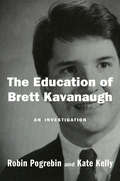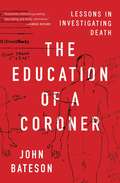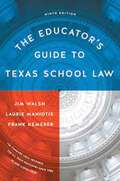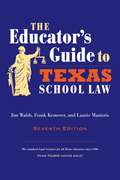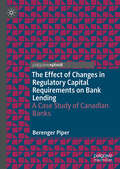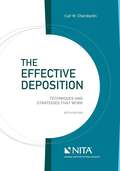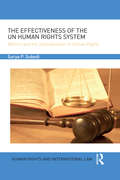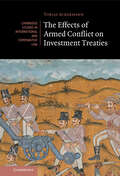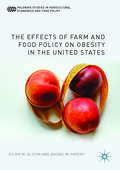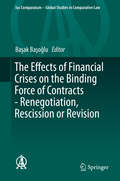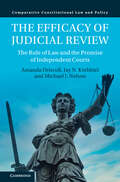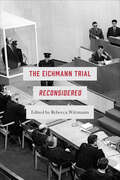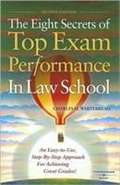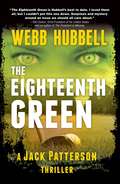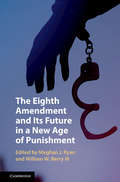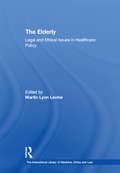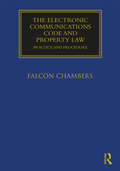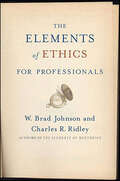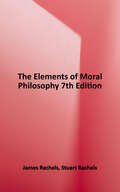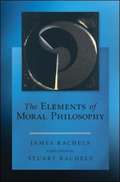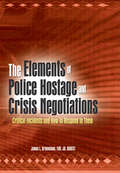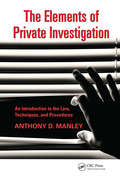- Table View
- List View
The Education of Brett Kavanaugh: An Investigation
by Kate Kelly Robin Pogrebin<P><P>In September 2018, the F.B.I. was given only a week to investigate allegations of sexual misconduct against Brett Kavanaugh, President Trump's Supreme Court nominee. But even as Kavanaugh was sworn in to his lifetime position, many questions remained unanswered, leaving millions of Americans unsettled. <P><P>During the Senate confirmation hearings that preceded the bureau's brief probe, New York Times reporters Robin Pogrebin and Kate Kelly broke critical stories about Kavanaugh's past, including the "Renate Alumni" yearbook story. They were inundated with tips from former classmates, friends, and associates that couldn't be fully investigated before the confirmation process closed. <P><P>Now, their book fills in the blanks and explores the essential question: Who is Brett Kavanaugh? The Education of Brett Kavanaugh paints a picture of the prep-school and Ivy-League worlds that formed our newest Supreme Court Justice. <P><P>By offering commentary from key players from his confirmation process who haven't yet spoken publicly and pursuing lines of inquiry that were left hanging, it will be essential reading for anyone who wants to understand our political system and Kavanaugh's unexpectedly emblematic role in it.
The Education of a Coroner: Lessons in Investigating Death
by John BatesonIn the vein of Dr. Judy Melinek’s Working Stiff, an account of the hair-raising and heartbreaking cases handled by the coroner of Marin County, California throughout his four decades on the job—from high-profile deaths to serial killers, to Golden Gate Bridge suicides.Marin County, California is a study in contradictions. Its natural beauty attracts thousands of visitors every year, yet the county also is home to San Quentin Prison, one of the oldest and largest penitentiaries in the country. Marin ranks in the top one percent of counties nationwide in terms of affluence and overall health, yet it is far above the norm in drug overdoses and alcoholism, and comprises a large percentage of suicides from the Golden Gate Bridge. Ken Holmes worked in the Marin County Coroner’s Office for thirty-six years, starting as a death investigator and ending as the three-term, elected coroner. As he grew into the job—which is different from what is depicted on television—Holmes learned a variety of skills, from finding hidden clues at death scenes, interviewing witnesses effectively, managing bystanders and reporters, preparing testimony for court to notifying families of a death with sensitivity and compassion. He also learned about different kinds of firearms, all types of drugs—prescription and illegal—and about certain unexpected and potentially fatal phenomena such as autoeroticism. Complete with poignant anecdotes, The Education of a Coroner provides a firsthand and fascinating glimpse into the daily life of a public servant whose work is dark and mysterious yet necessary for society to function.
The Educator's Guide to Texas School Law
by Frank Kemerer Jim Walsh Laurie ManiotisFor over twenty years, The Educator's Guide to Texas School Law has been the preeminent source for information on Texas school law for the state's education community. The sixth edition is the latest in a series of revisions designed to keep the book current, comprehensive, and readable. Readers will find a number of changes in the new edition. First and foremost, the immensely important No Child Left Behind Act has been incorporated at various points in the text, particularly in discussions pertaining to accountability, assessment, and school safety. Other changes include an expanded discussion of charter schools, school uniform policies, and student drug testing programs. Employment issues are now addressed in two chapters, one dealing with contractual matters and the other with personnel management. The new edition includes all legislative developments, relevant federal and state court rulings, and Texas Commissioner of Education decisions to date. In its ten chapters, The Educator's Guide discusses a myriad of topics relating to the legal structure of the Texas school system, attendance law and the instructional program, the education of children with disabilities, employment law, rights of expression and association, the role of religion, student discipline, open meetings and public records, privacy issues, student search and seizure, and legal liability of school districts and employees.
The Educator's Guide to Texas School Law
by Jim Walsh Laurie Maniotis Frank R. KemererMuch has changed in the area of school law since the first edition of The Educator’s Guide was published in 1986. This new ninth edition offers an authoritative source on all major dimensions of Texas school law through the 2017 legislative sessions. <p><p>Intended for educators, school board members, interested attorneys, and taxpayers, the ninth edition explains what the law is and what the implications are for effective school operations. It is designed to help professional educators avoid expensive and time-consuming lawsuits by taking effective preventive action. It is an especially valuable resource for school law courses and staff development sessions. <p><p> The ninth edition begins with a review of the legal structure of the Texas school system, incorporating recent innovative features such as charter schools and districts of innovation. Successive chapters address attendance, the instructional program, service to students with special needs, the rights of public school employees, the role of religion, student discipline, governmental transparency, privacy, parent rights, and the parameters of legal liability for schools and school personnel. The book includes discussion of major federal legislation, such as the Individuals with Disabilities Education Act, the Family Educational Rights and Privacy Act, Section 504 of the Rehabilitation Act of 1973, and the Every Student Succeeds Act. On the state level, the book incorporates new laws pertaining to cyberbullying and inappropriate relationships between students and employees. Key points are illustrated through case law, and a complete index of case citations is included.
The Educator's Guide to Texas School Law (Seventh Edition)
by Frank Kemerer Jim Walsh Laurie ManiotisMuch has changed in the area of school law since the first edition of The Educator's Guide was published in 1986. In this new seventh edition, the authors have streamlined the discussion by pruning older material and weaving in new developments. The result is an authoritative source on all major dimensions of Texas school law that is both well integrated and easy to read. Intended for Texas school personnel, school board members, interested attorneys, and taxpayers, the seventh edition explains what the law is and what the implications are for effective school operations. It is designed to help professional educators avoid expensive and time-consuming lawsuits by taking effective preventive action. It is an especially valuable resource for school law courses and staff development sessions. The seventh edition begins with a review of the legal structure of the Texas school system. Successive chapters address attendance and the instructional program, the education of children with special needs, employment and personnel, expression and associational rights, the role of religion in public schools, student discipline, open meetings and records, privacy, search and seizure, and legal liability under both federal and Texas law. In addition to state law, the book addresses the growing role of the federal government in school operation through such major federal legislation as the Americans with Disabilities Act, the Individuals with Disabilities Education Act, and the No Child Left Behind Act.
The Effect of Changes in Regulatory Capital Requirements on Bank Lending: A Case Study of Canadian Banks
by Berenger PiperThis book offers a comprehensive analysis of how changes in microprudential and macroprudential regulations—specifically, regulatory capital requirements—affect the lending behaviour of Canadian banks. Drawing on empirical data, the study explores three key dimensions. Loan Volume: It explores how increases in capital requirements lead to a measurable decline in the volume of gross loans extended to the non-financial sector, even after accounting for macroeconomic conditions. Interest Rates: It examines why, during periods of economic stability, higher capital requirements do not necessarily translate into higher loan interest rates—aligning with findings in the existing literature. Loan Portfolio Composition: It uncovers how different segments of the loan portfolio—Corporate & Commercial Loans, Residential Mortgages, and Consumer/Retail Loans—respond uniquely to regulatory changes, with corporate lending being the most sensitive. The book also examines how economic policy uncertainty and bank profitability influence lending decisions, offering nuanced insights into the interplay between regulation and financial behaviour. A vital resource for policymakers, regulators, and financial scholars, this work contributes to the limited literature on capital regulation in Canada. It provides practical guidance on how to strengthen financial resilience without stifling the credit needed for economic recovery and growth.
The Effective Deposition: Techniques And Strategies That Work
by Carl W. ChamberlinBuy a new version of this textbook and receive access to the Connected eBook on Casebook Connect, including lifetime access to the online ebook with highlight, annotation, and search capabilities. Access also includes an outline tool and other helpful resources. Connected eBooks provide what you need most to be successful in your law school classes. In an era when most cases settle before trial, taking depositions is a crucial skill that every attorney must master. The Effective Deposition will prepare you to successfully take, defend, and use the deposition to its greatest advantage. Advocates and law students have long relied on The Effective Deposition to get essential know-how for the most critical step in discovery. Now in its sixth edition, The Effective Deposition is completely rewritten to reflect the latest deposition strategies, technological advances, changes in the laws of evidence and procedure, and the evolving nature of deposition-taking itself. This updated classic is a must for students and practitioners alike.
The Effectiveness of the UN Human Rights System: Reform and the Judicialisation of Human Rights (Human Rights and International Law)
by Surya P. Subedi, OBE, QC (Hon)The UN human rights agenda has reached the mature age of 70 years and many UN mechanisms created to implement this agenda are themselves in their middle-age, yet human rights violations are still a daily occurrence around the globe. The scorecard of the UN human rights mechanisms appears impressive in terms of the promotion, spreading of education and engaging States in a dialogue to promote human rights, but when it comes to holding governments to account for violations of these rights, the picture is much more dismal. This book examines the effectiveness of UN mechanisms and suggests measures to reform them in order to create a system that is robust and fit to serve the 21st century. This book casts a critical eye on the rationale and effectiveness of each of the major UN human rights mechanisms, including the Human Rights Council, the human rights treaty bodies, the UN High Commissioner for Human Rights, the UN Special Rapporteurs and other Charter-based bodies. Surya P. Subedi argues most of the UN human rights mechanisms have remained toothless entities and proposes measures to reform and strengthen it by depoliticising the workings of UN human rights mechanisms and judicialising human rights at the international level.
The Effects of Armed Conflict on Investment Treaties (Cambridge Studies in International and Comparative Law #169)
by Tobias AckermannThis book analyses the multi-faceted impact armed conflict has on investment treaties. Refuting the common association of the outbreak of hostilities with the termination or suspension of treaties, it not only makes a case for the continuity of investment treaties. The book argues that the impact of armed conflict on such agreements goes far beyond these questions: Changed factual circumstances and public interests as well as international humanitarian law heavily influence the application and interpretation of investment protection standards. The book argues that investment treaties can and must channel these effects to remain effective during armed conflict and strike a fair balance between investor and public interests. It shows ways in which contextual and systemic interpretation, respect for reasonable state action, and careful treaty design can ensure that investment treaties continue to fulfil their purpose of strengthening compliance with legal rules also in times of armed conflict.
The Effects of Farm and Food Policy on Obesity in the United States
by Julian M. Alston Abigail M. OkrentThis book uses an economic framework to examine the consequences of U. S. farm and food policies for obesity, its social costs, and the implications for government policy. Drawing on evidence from economics, public health, nutrition, and medicine, the authors evaluate past and potential future roles of policies such as farm subsidies, public agricultural R&D, food assistance programs, taxes on particular foods (such as sodas) or nutrients (such as fat), food labeling laws, and advertising controls. The findings are mostly negative--it is generally not economic to use farm and food policies as obesity policy--but some food policies that combine incentives and information have potential to make a worthwhile impact. This book is accessible to advanced undergraduate and graduate students across the sciences and social sciences, as well as to decision-makers in the public, private, and not-for-profit sectors.
The Effects of Financial Crises on the Binding Force of Contracts - Renegotiation, Rescission or Revision
by Başak BaşoğluThis book is about one of the most controversial dilemmas of contract law: whether or not the unexpected change of circumstances due to the effects of financial crises may under certain conditions be taken into account. Growing interconnectedness of global economies facilitates the spread of the effects of the financial crises. Financial crises cause severe difficulties for persons to fulfill their contractual obligations. During the financial crises, performance of contractual obligations may become excessively onerous or may cause an excessive loss for one of the contracting parties and consequently destroy the contractual equilibrium and legitimate the governmental interventions. Uncomfortable economic climate leads to one of the most controversial dilemmas of the contract law: whether the binding force of the contract is absolute or not. In other words, unstable economic circumstances impose the need to devote special attention to review and perhaps to narrow the binding nature of a contract. Principle of good faith and fair dealing motivate a variety of theoretical bases in order to overcome the legal consequences of financial crises. In this book, all these theoretical bases are analyzed with special focus on the available remedies, namely renegotiation, rescission or revision and the circumstances which enables the revocation of these remedies. The book collects the 19 national reports and the general report originally presented in the session regarding the Effects of Financial Crises on the Binding Force of Contracts: Renegotiation, Rescission or Revision during the XIXth congress of the International Academy of Comparative Law, held in Vienna, July 2014.
The Effects of Social Health Insurance Reform on People’s Out-of-Pocket Health Expenditure in China
by Kai LiuThis study examines and explains the relationship between social health insurance (SHI) participation and out-of-pocket expenditures (OOP) as well as the mediating role the institutional arrangement of SHI plays in this relationship in China. Embracing a new institutionalist approach, it develops two analytical perspectives: determination, which identifies the mechanisms of social health insurance, and strategic interaction, which explores the interaction among social health insurance agencies, healthcare providers, patients, and institutions. It reveals the poor performance of social health insurance in decreasing out-of-pocket health expenditures caused by a trade-off between the reimbursement, behavior management, and purchasing mechanisms of social health insurance programs. Further, it finds that the inequitable allocation of healthcare resources and patients concerns regarding the benefits offset the strategies used by social health insurance agencies to manage care-seeking behavior. It also discovers that the complex interactions between insurance agencies, doctors, patients and a larger disenabling institutional surrounding restricts the purchasing efficiency of social health insurance. This book is characterized by its unique synthesis of the role of the institutional arrangement of social health insurance in China, the interaction between the stakeholders in health sectors, and of the relationship between healthcare institutions, actors, and policy outcomes. Providing a comprehensive overview, it enables scholars and graduate students to understand the ongoing process of social health insurance reform as well as the dynamics of health cost inflation in China. It also benefits policymakers by recommending a single-payer model based on an evidence-based investigation. "
The Efficacy of Judicial Review: The Rule of Law and the Promise of Independent Courts (Comparative Constitutional Law and Policy)
by Michael J. Nelson Amanda Driscoll Jay N. KrehbielOver the past century, countries around the globe have empowered constitutional courts to safeguard the rule of law. But when can courts effectively perform this vital task? Drawing upon a series of survey experiments fielded in the United States, Germany, Hungary, and Poland, this book demonstrates that judicial independence is critical for judicial efficacy. Independent courts can empower citizens to punish executives who flout the bounds of constitutional rule; weak courts are unable to generate public costs for transgressing the law. Although judicial efficacy is neither universal nor automatic, courts – so long as they are viewed by the public as independent – can provide an effective check on executives and promote the rule of law.
The Ego and the Id (Complete Psychological Works Of Sigmund Freud Ser. #0)
by Sigmund Freud“Many major ideas have been borne out [of his theories] and are still relevant today.” —Huffington Post One of famed psychoanalyst Sigmund Freud’s most prominent ideas was that of the id, the ego, and the super-ego—the three main factors behind the workings of the human mind. Freud claimed these components of the human psyche controlled all processes of personality, behaviors, and traits in a person. The Id was a person’s most basic and impulsive instincts—the ones that feed into our deepest desires and physical needs. The Super-Ego was the opposite of the id. This component controlled our highest morals and standards, operating through our conscience and making us desire to be our most ideal-selves. The piece in the middle is the Ego. The ego mediates between the id and realities of the world around us, while being supervised (and guilted) by the super-ego. In this new edition of his book, The Ego and the Id, Sigmund Freud delves deeper into the concepts of the human mind and the results of the conflicts and workings between them.
The Eichmann Trial Reconsidered (German and European Studies)
by Ed. Wittmann Rebecca, Ed. Wittmann RebeccaThe Eichmann Trial Reconsidered brings together leading authorities in a transnational, international, and supranational study of Adolf Eichmann, who was captured by the Israelis in Argentina and tried in Jerusalem in 1961. The essays in this important new collection span the disciplines of history, film studies, political science, sociology, psychology, and law. Contributing scholars adopt a wide historical lens, pushing outwards in time and space to examine the historical and legal influence that Adolf Eichmann and his trial held for Israel, West Germany, and the Middle East. In addition to taking up the question of what drove Eichmann, contributors explore the motivation of prosecutors, lawyers, diplomats, and neighbouring countries before, during, and after the trial ended. The Eichmann Trial Reconsidered puts Eichmann at the centre of an exploration of German versus Israeli jurisprudence, national Israeli identities and politics, and the conflict between German, Israeli, and Arab states.
The Eight Secrets of Top Exam Performance in Law School: An Easy-to-use, Step-by-step Approach for Achieving Great Grades
by Charles H. WhitebreadIn this work, nationally-recognized exam expert Professor Charles Whitebread will teach you the eight secrets that will add points to every exam answer you write. You will learn the three keys to handling any essay exam, how to use time to your advantage, issue-spotting, how to organize your answer, and the hidden traps of the "IRAC" method. Once you have mastered these skills, you can put your knowledge to the test with sample exam questions, and check your answers against those provided. There is also a special section on how to do well on other exams, like open book, multiple choice, or policy exams.
The Eighteenth Green (A Jack Patterson Thriller #4)
by Webb HubbellWho was Harold Spencer? All D.C. Lawyer Jack Patterson knew was that Spencer’s dead body had been found on the 18th Green of Columbia Country Club, cancelling Jack’s Saturday golf game. Who is Rachel Goodman? Her name has been plastered on the front page of every newspaper in the country for weeks, branded as a thief of confidential info vital to U.S. National Security and a spy for Israel. She is also the daughter of Jack’s long-time friend and mentor, Ben Jennings. Despite the opposition, Jack feels compelled to defend Rachel. He goes to work against the government, the all-powerful military-industrial complex, most of the press and Congress, all of whom are convinced that Rachel is guilty and should receive the death penalty for her treason. Clovis Jones, Jack’s friend, is the victim of a vicious attack. The more Jack digs, the more complicated and dangerous his work becomes. Even a volunteer group of Navy SEALs may not be enough protection.Jack discovers the key to Rachel’s exoneration lies with Harold Spencer, the man found dead on the 18th Green. Jack rushes to discover who killed Spencer and why, but the murderer has now trained his sights on Jack and will stop at nothing.
The Eighth Amendment and Its Future in a New Age of Punishment
by Meghan J. Ryan William W. Berry IIIThis book provides a theoretical and practical exploration of the constitutional bar against cruel and unusual punishments, excessive bail, and excessive fines. It explores the history of this prohibition, the current legal doctrine, and future applications of the Eighth Amendment. With contributions from the leading academics and experts on the Eighth Amendment and the wide range of punishments and criminal justice actors it touches, this volume addresses constitutional theory, legal history, federalism, constitutional values, the applicable legal doctrine, punishment theory, prison conditions, bail, fines, the death penalty, juvenile life without parole, execution methods, prosecutorial misconduct, race discrimination, and law & science.
The Elderly: Legal and Ethical Issues in Healthcare Policy (The International Library of Medicine, Ethics and Law)
by Martin Lyon LevineAging is a public health priority that is becoming increasingly important in both developed and less developed nations, with individual health care providers and law-makers each facing difficult ethical and policy dilemmas. The complex issues physicians deal with include informed consent and patient decision-making capacity, use of advance care planning and decision-making by family and medical staff, and withdrawing and withholding life-sustaining interventions. Broader questions include: has aging been over medicalized? Is it ethical for older patients to receive less medical care than younger ones, through unspoken practice or formal rationing? Is there inevitable conflict between the generations over scarce medical resources? How should physician, patient and family confront end-of-life decisions? How have different nations responded to increasing numbers of the elderly? Have social values changed as to family responsibility and individual autonomy? This volume brings together the most significant published essays in the field.
The Electronic Communications Code and Property Law: Practice and Procedure
by Falcon ChambersLife now without access to electronic telecommunications would be regarded as highly unsatisfactory by most of the UK population. Such ready access would not have been achieved without methodical and ultimately enforceable means of access to the land on which to install the infrastructure necessary to support the development of an electronic communications network. Successive governments have made such access a priority, regarding it as a principle that no person should unreasonably be denied access to an electronic communications network or electronic communications services. The enactment of the Telecommunications Act 1984 and its revision by the Communications Act in 2003 have played their role in the provision of an extensive electronic infrastructure in the UK, while their reshaping by means of the Digital Economy Act 2017 will continue that process. Throughout that process, a little publicised series of struggles has taken place between telecommunications operators and landowners, as they seek to interpret the Electronic Communications Code by which their rights and obligations have been regulated. This book describes the problems that accompanied the Old Code (which will continue to regulate existing installations and agreements); and the intended solutions under the New Code. The eminent team of authors explain the background, provisions and operation of the old code and the new one, providing practical and jargon-free guidance throughout. It is sure to become the reference on this topic and is intended as a guide for telecommunications operators, land owners, and of course for their advisers in the legal and surveying professions. All members of Falcon Chambers, comprising nine Queen’s Counsel and 30 junior barristers, specialise in property law and allied topics, including the various incarnations of the Electronic Communications Code. Members of Falcon Chambers, including all the authors of this new work, have for many years lectured and written widely on the code, and have appeared (acting for both operators and landowners) in many of the few reported cases on the subject of the interface between property law and the code, including for example: Geo Networks Ltd v The Bridgewater Canal Co. Ltd (2010); Geo Networks Ltd v The Bridgewater Canal Co. Ltd (2011); Crest Nicholson (Operations) Ltd v Arqiva Services Ltd (2015); Brophy v Vodafone Ltd (2017).
The Elements of Ethics for Professionals
by Charles R. Ridley W. Brad JohnsonFrom the authors of Elements of Mentoring, this handy guide pulls the existing research on the delicate balance of professional ethics into one concise source. Johnson and Ridley explore seventy-five of the most important and pithy truths for supervisors in all fields, including questions of integrity, loyalty, justice, respect, and delivering one's best in the business environment. The authors delve into all aspects of ethical conduct, including: -- Excellence in the workplace -- Dignity & respect -- Compassion for co-workers -- Coercion & power -- Self-reliance and fidelity -- Ethical decision-making and moralitySuccinct and comprehensive, with examples and takeaway advice, The Elements of Ethics for Professionals is a must-have for any professional or business leader striving to create an ethical workplace.
The Elements of Moral Philosophy
by Stuart Rachels James RachelsFirmly established as the standard text for undergraduate courses in ethics, James Rachels and Stuart Rachels' The Elements of Moral Philosophy introduces readers to major moral concepts and theories through eloquent explanations and compelling, thought-provoking discussions.
The Elements of Moral Philosophy 8th Edition
by Stuart Rachels James RachelsThe Elements of Moral Philosophy by James Rachels and Stuart Rachels is a best-selling text for undergraduate courses in ethics. Thirteen thought-provoking chapters introduce readers to major moral concepts and theories in philosophy through clear, understandable explanations and compelling discussions.
The Elements of Police Hostage and Crisis Negotiations: Critical Incidents and How to Respond to Them
by James L GreenstoneRun a safe and successful crisis negotiation-from start to finish! The Elements of Police Hostage and Crisis Negotiations: Critical Incidents and How to Respond to Them reduces the negotiation procedures for hostage, barricaded, and suicide incidents to their basic elements, providing quick and easy access to the information you need-from the initial call-out to the final debriefing. Based on field-tested principles proven to work, the book also includes newly developed and highly specialized techniques for more experienced negotiators. Author James L. Greenstone provides a user-friendly, step-by-step guide to the intervention and negotiation process that will help you get the job done-right. Designed for day-to-day, on-the-scene use, The Elements of Police Hostage and Crisis Negotiations is a practical handbook for experienced professionals and novices that can also be used as a supplementary textbook for criminal justice, crisis intervention, and psychology coursework. Each chapter contains useful checklists, procedural notes, tables, strategy worksheets, and forms, and the book includes special indices for quick reference in addition to a traditional index. Dr. Greenstone, a police mental health consultant and psychologist who served as Director of the Psychological Services Unit of the Fort Worth Police Department in Texas, uses a simple and direct format that emphasizes procedures, action and results, leaving theoretical discussions for another time and place. The book examines the negotiation process from start to finish, including preincident preparations, first response responsibilities, responding to the call-out, arriving at the scene, preparing to negotiate, making contact, preparing for the surrender, post-incident tasks, preparing equipment, and more. Topics covered in The Elements of Police Hostage and Crisis Negotiations include: legal considerations telephone surveillance guidelines the Stockholm Syndrome working with S.W.A.T. and Tactical Emergency Medical Support dealing with the media recognizing "red flags" the issues of suicide debriefing the hostage team the 150 laws of hostage and crisis negotiation and the 10 most serious errors a negotiator can make The Elements of Police Hostage and Crisis Negotiations: Critical Incidents and How to Respond to Them is a practical guide that&’s equally effective in the field, in training, and in the office.
The Elements of Private Investigation: An Introduction to the Law, Techniques, and Procedures
by Anthony ManleyIn today‘s increasingly litigious society, the threat of a private investigator (PI) being hit with a civil lawsuit or even criminal charges is very real. Keeping up with the multitude of laws that impact what investigators can and can‘t do can be daunting but could prove very costly if ignored.Emphasizing legal and liability issues, The Elements o
